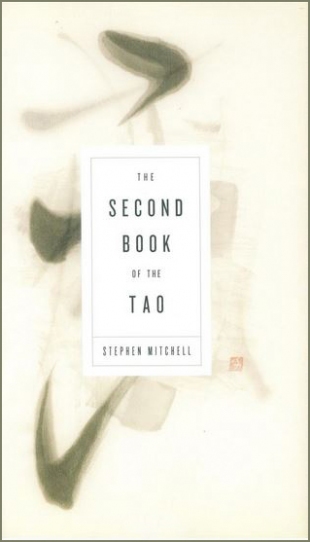Stephen Mitchell is the author of The Gospel According to Jesus, Meetings with the Archangel, and other works. He has also co-authored two books with his wife Byron Katie. His translation of Lao-Tzu's Tao Te Ching was a bestseller and now he has created a sequel to that volume based on the work of Lao-tzu's disciple Chuang-tzu and Confucius's grandson Tzu-Ssu.
In the foreword, Mitchell says: "If Lao-tzu is a smile, Chuang-tzu is a belly-laugh." He sees this ancient Chinese sage as a pioneer of wisdom literature that stretches into our own times: "There was only a passion for the genuine, a fascination with words, and a constant awareness that the ancient Masters are alive and well in the mind that doesn't know a thing."
Mitchell offers 64 chapters in this book and notes other things with this count (the number of hexagrams in the I Ching, the number of squares on a chessboard, the number of sexual positions in the Kama Sutra, and the only two-digit number ever to star in a Beatles song). Alongside each entry by Chuang-tzu and Tzu-ssu, the author unspools his poetic, mystical, imaginative, and spiritual interpretations. For Mitchell, the Tao cannot be named and not-knowing is the best approach to the mysteries of life. Instead of tramping off in search of absolutes and answers, we should concentrate on what is happening within our innermost self.
Mitchell takes his hat off to the simple elegance of the ancient Masters who "pared themselves down to the essential" and "received life as a gift." In his commentary on 15, he celebrates their practice of gratitude and notes:
"Gratitude makes no distinctions. It precedes its occasion. It is the magic well that never runs dry, the still waters where you kneel and see your own face, more beautiful than you could have imagined."
On these pages, Chuang-tzu and Tzu-ssu help us train our minds not to get caught up in comparisons, "the hierarchies of fors and againsts, betters and worses, insides and outsides." The less we are attached to one side or another, the easier it is to open ourselves to whatever presents itself to us. Or as Mitchell puts in his commentary on 33:
"Everything matters: how we vote, how we tie our shoelaces, how we respond to the faintest whisper of a thought. And nothing matters, because (look!) it's already gone. When we understand this, we're home free."
Many of these pieces revolve around the Master who can be a man or a woman. We pick up glints of wisdom: the Master doesn't aim for success or avoid failure; he maintains balance whichever opposite he enters; she remains peaceful in the midst of change; the Master treads lightly on the earth; he delights in sickness and in health; he achieves success yet never does a thing; and she takes responsibility and seeks nothing from other people.
That is enough talk: we take to heart the message of 41:
The Tao is beyond words.
The more you talk about it,
the farther away from it you get.
Only when you are truly
unattached to words or to silence
can you express the truth.
